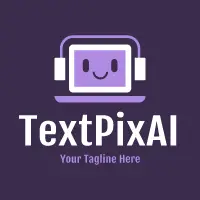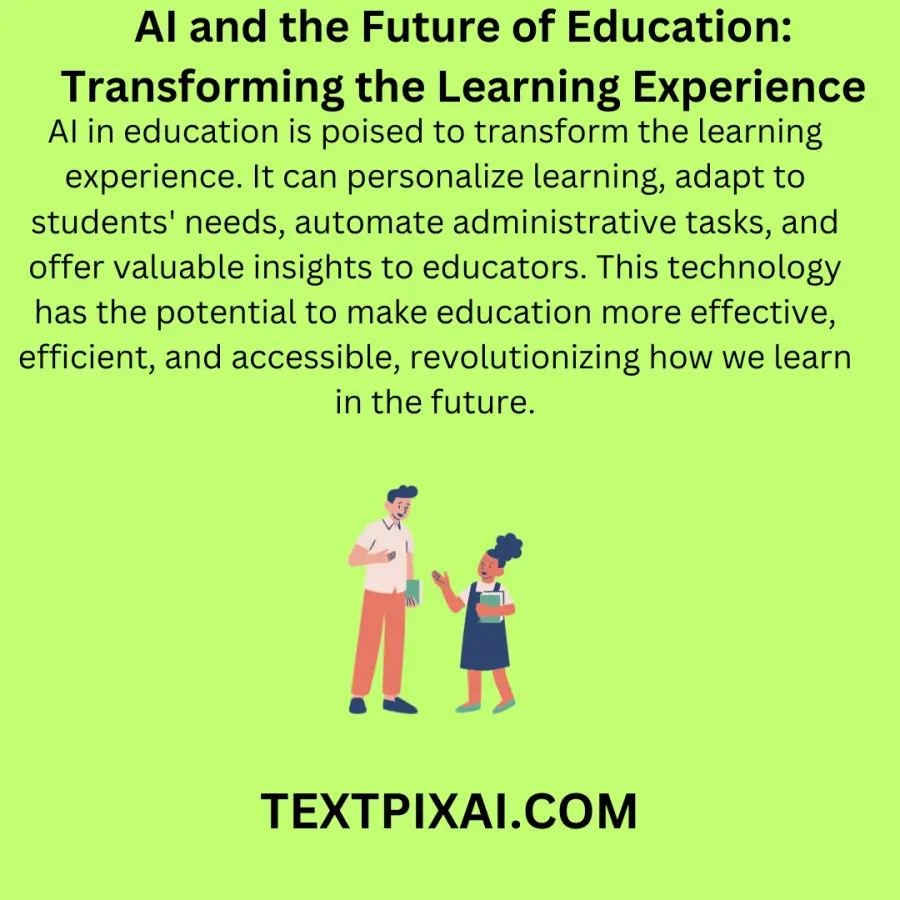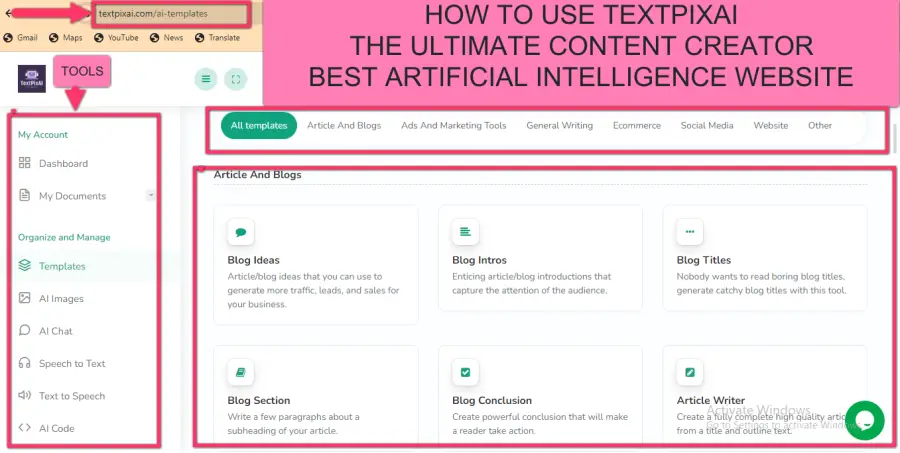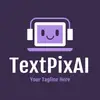AI and the Future of Education: Transforming the Learning Experience
Introduction
In a rapidly evolving world, education has always been a cornerstone of progress. It equips individuals with the knowledge and skills needed to thrive in society. However, as the digital age continues to reshape our lives, traditional education methods are facing unprecedented challenges. This article explores how Artificial Intelligence (AI) is revolutionizing education, ushering in a new era of learning experiences that are dynamic, personalized, and accessible to all.
The traditional classroom model, while effective, often struggles to accommodate the diverse needs and preferences of students. This is where AI steps in, offering innovative solutions that transform education into a more inclusive and adaptive experience.
The Role of AI in Education
AI's role in education is multifaceted. It serves as a powerful tool to enhance various aspects of the learning process, from content creation to assessment. With AI, education becomes more dynamic and tailored to individual learners.
You may also like to read:
AI in Customer Service: Enhancing Support or Replacing Human Interaction?
Personalized Learning Paths
One of the most significant contributions of AI to education is its ability to create personalized learning paths. By analyzing students' strengths and weaknesses, AI algorithms can recommend customized learning materials and activities. This individualized approach ensures that students progress at their own pace, leading to improved learning outcomes.
Adaptive Assessments
Traditional exams often follow a one-size-fits-all format. AI-driven assessments, on the other hand, adapt to students' performance levels. This means that students are continually challenged at the appropriate difficulty level, helping them grow and develop their skills more effectively.
AI-Powered Content Creation
AI algorithms can generate educational content, from textbooks to interactive simulations. This not only reduces the burden on educators but also ensures that the material is up-to-date and aligned with current trends and discoveries.
Virtual Classrooms
The rise of AI has also given birth to virtual classrooms, where students from around the world can engage in real-time discussions and lectures. This global perspective enriches the learning experience and fosters cultural exchange.
Teacher Support and Augmentation
Contrary to the fear of AI replacing human teachers, AI is designed to support educators. It can automate administrative tasks, provide insights into student performance, and offer recommendations for teaching strategies. This augmentation allows teachers to focus more on meaningful interactions with their students.
Enhanced Accessibility
AI-driven education solutions break down barriers to access. They are particularly beneficial for individuals with disabilities, as AI can provide tailored support, such as speech-to-text and text-to-speech functions, making learning more inclusive.
Ethical Considerations
While AI offers tremendous potential, ethical considerations are paramount. Issues such as data privacy, algorithmic bias, and the depersonalization of education must be addressed to ensure that AI benefits all learners.
Challenges and Concerns
Despite its promise, AI in education faces challenges, including the digital divide, resistance to change, and the need for substantial investments in infrastructure. Overcoming these hurdles will be crucial for the successful integration of AI into education.
The Future of Education
The future of education is undeniably intertwined with AI. As technology continues to advance, we can expect more innovative solutions that adapt to the evolving needs of learners. AI-driven education will empower individuals with the skills and knowledge to thrive in an ever-changing world.
Conclusion
In conclusion, AI is reshaping education in ways we could only have imagined a few years ago. It's making education more personalized, accessible, and effective. While there are challenges to overcome, the potential benefits for learners of all ages are immense.
In this era of AI and education, the possibilities are limitless. As technology continues to advance, we must embrace these innovations to create a brighter and more inclusive future for learners of all ages.
FAQs
1. What is personalized learning?
- Personalized learning is an educational approach that tailors the curriculum, teaching methods, and learning materials to the individual needs and preferences of each student.
2. How does AI enhance accessibility in education?
- AI enhances accessibility in education by providing tools and features that accommodate students with disabilities, such as text-to-speech, speech-to-text, and adaptive assessments.
3. Are there any privacy concerns with AI in education?
- Yes, privacy concerns arise when AI collects and analyzes student data. It's essential to implement robust data protection measures to safeguard students' privacy.
4. Will AI replace human teachers?
- AI is designed to augment and support human teachers, not replace them. Human interaction and mentorship remain essential in education.
5. How can AI adapt to different learning styles?
- AI can adapt to different learning styles by analyzing individual student performance and preferences. It tailors learning materials and methods to suit each student's unique needs.








